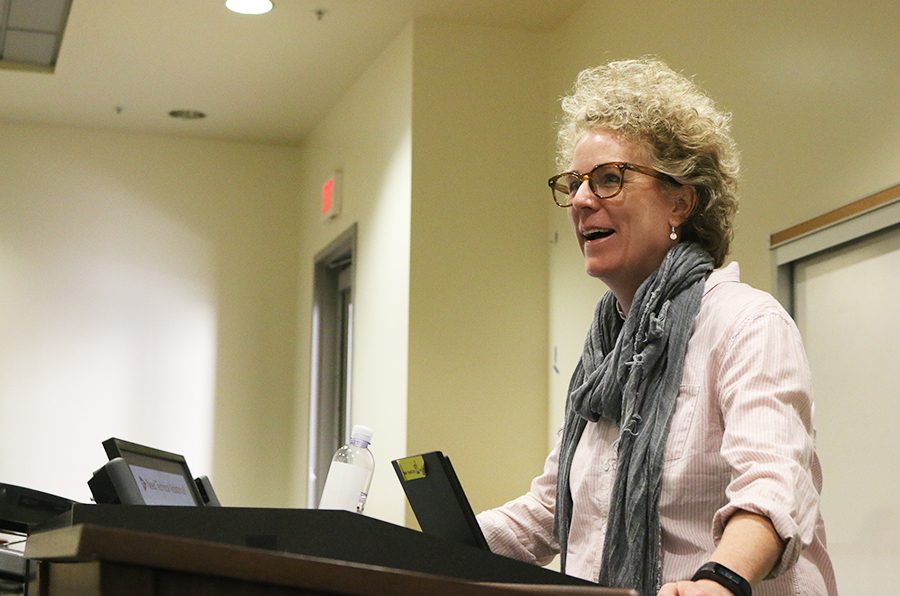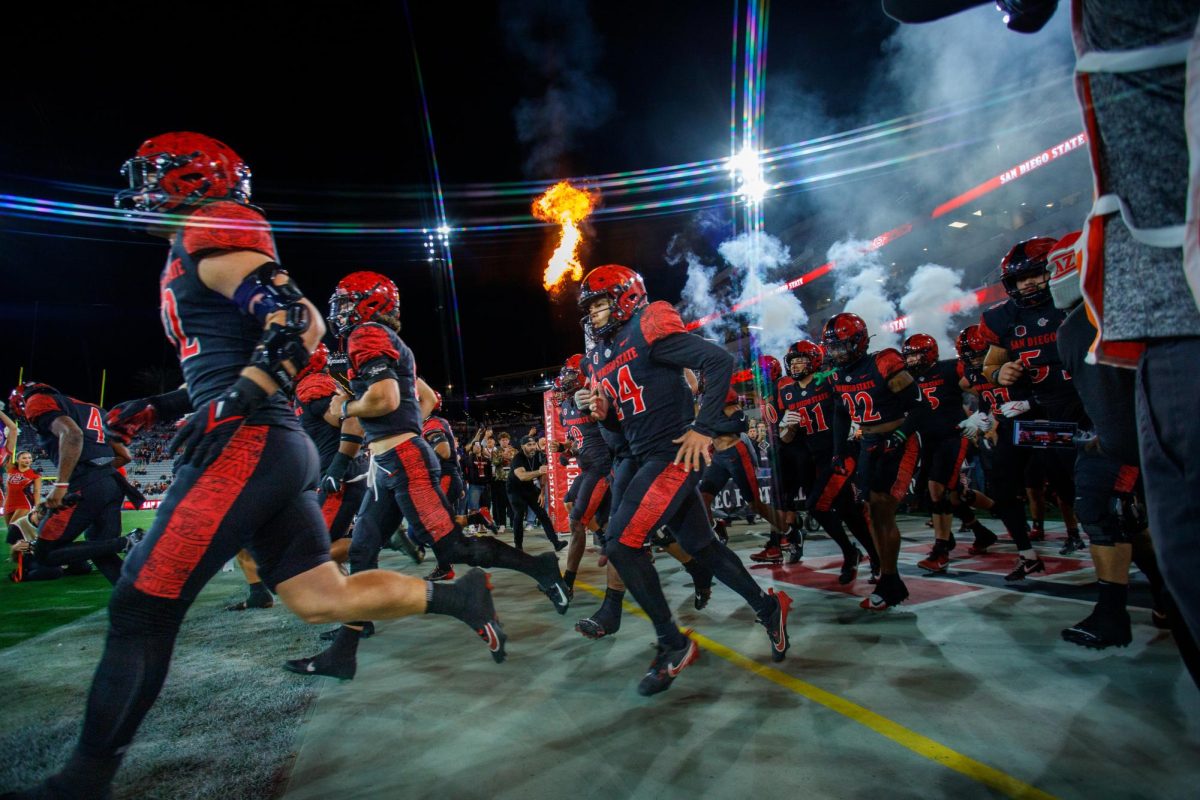Susanne Craig, the New York Times journalist who received president-elect Donald Trump’s 1995 taxes in her mailbox, talked to a Journalism and Media Studies class at San Diego State on Dec. 2.
Craig, who is from Canada, worked for her college newspaper. After graduation she worked as a financial writer for a newspaper in Ontario, then went to work for the Wall Street Journal, covering the financial crisis of 2007.
Craig said several journalists were searching for information on Trump’s taxes and she gave out her mailing address in hopes of getting any information about his tax returns.
One morning she received an envelope with three different papers from Trump’s taxes. At first Craig said she couldn’t believe they were legitimate, and even went to check other mailboxes at the New York Times to see if anyone had gotten the same envelope as her.
But after contacting Trump’s accountant, whose signature was in the records, Craig verified the authenticity of the documents.
She said it took eight days to verify the tax returns before publishing them.
Craig said she came to SDSU because she felt it is important to give back in any way you can.
Craig said journalism students should not be afraid to call people in or be afraid of the story that comes from an unexpected place.
“Keep an open mind,” Craig said. “Don’t be afraid that the story may take you to a place that you didn’t think. I think when people talk about bias or an agenda comes up too, I think you obviously have to have an idea of what the story is. Go after that, keep an open mind”
Craig spoke in professor Martin Kruming’s Media Law & Ethics class after journalism junior Tiffany Jones, reached out to her personally.
This was the first time Craig had been invited to speak to a class by a student and came to San Diego because the timing worked out with her schedule.
Kruming said the idea of Craig coming to speak in his class came after he read her story in the New York Times explaining how she obtained Trump’s tax records.
“I asked the class whether anyone was interested in trying to track down Sue,” Kruming said. “One person, Tiffany Jones, did and as a result Sue flew from New York to San Diego last night, came to the class today and explained how this all happened.”
The task of contacting Craig took a while, Jones said. She said she accepted the challenge by Kruming because she thought it was something worth looking into. She emailed Craig, not expecting a response.
“On a very real level it was scary because it’s something you don’t always do,” Jones said. “And something that I learned through this whole process is, she’s a real person and as silly as that sounds, she’s down to earth and it’s not like ‘oh I’m too good for you.”
Jones said she was shocked when Craig said she agreed to come to the class.
“I was shocked honestly, because to begin with I didn’t think she would get back to my email so when all of this was in the works and she said, ‘yeah sure I’ll come’ I was like what,” Jones said. “Honestly I couldn’t have done it without professor Kruming because he was essential in all of this acting as a guide to me.”
Before heading to class at 1 p.m. in Arts and Letters, Craig, Kruming and Jones had breakfast with reporters from inewsource and met with the investigative team of the San Diego Union-Tribune.










